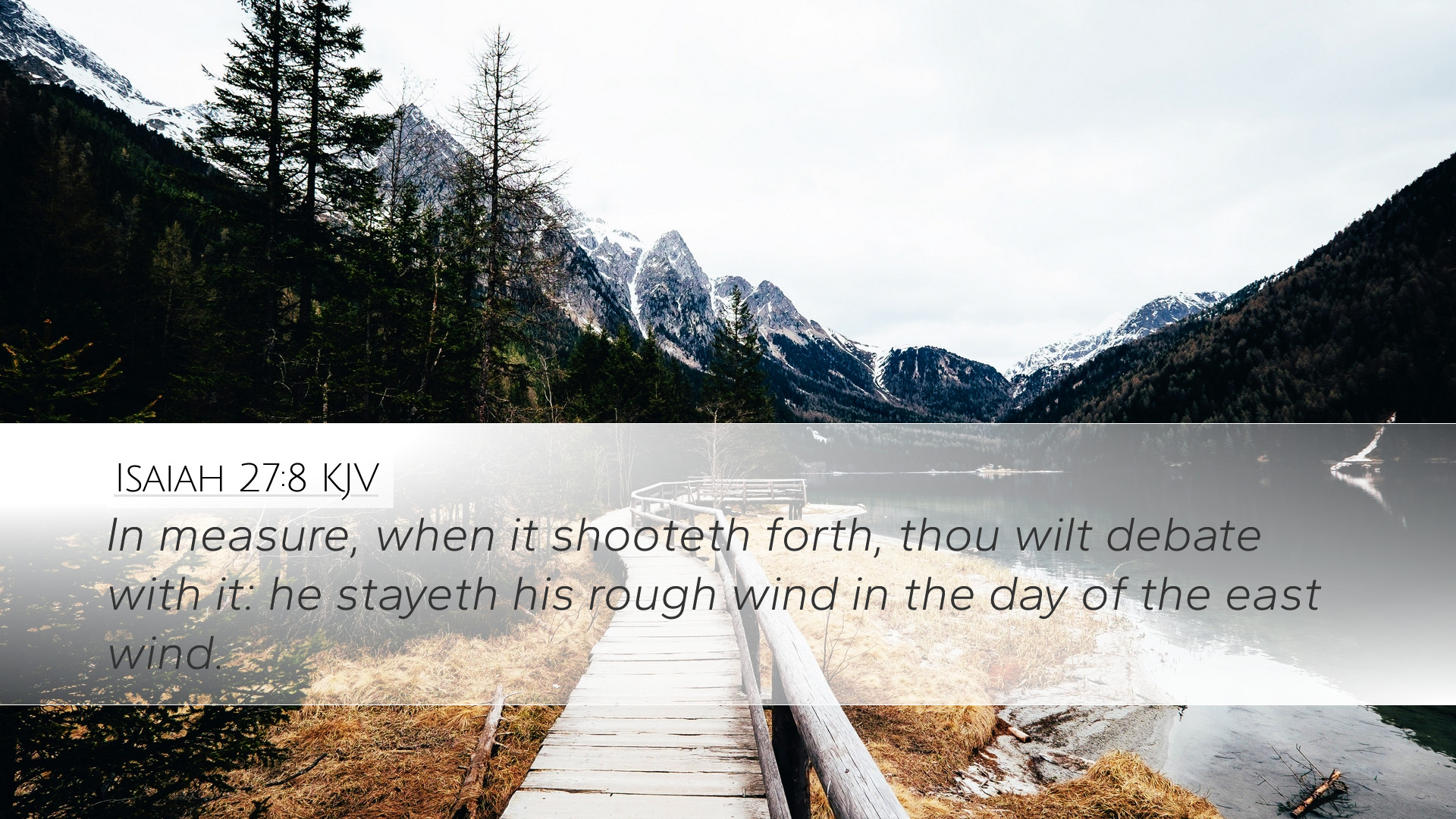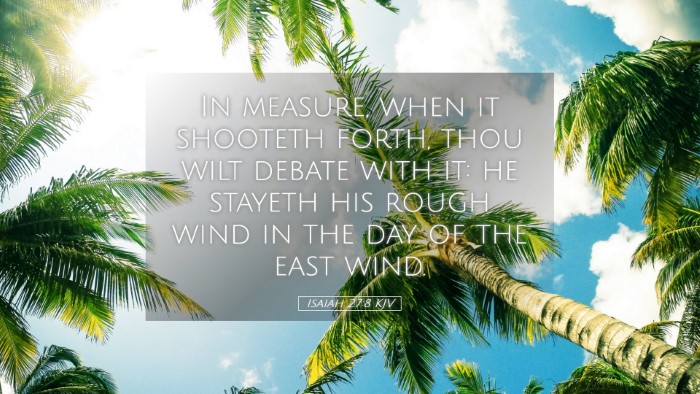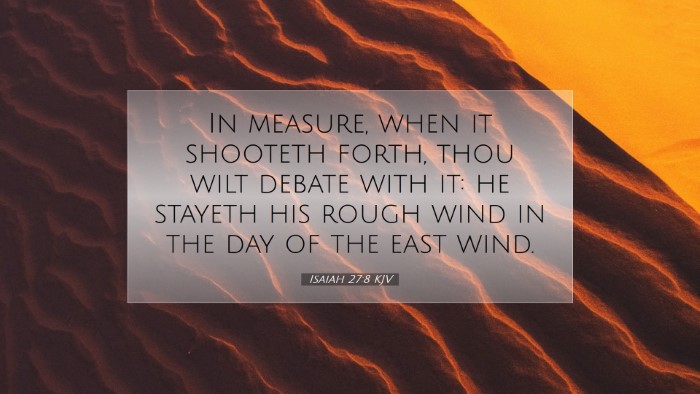Isaiah 27:8 - Commentary and Insights
Verse Context: Isaiah 27:8 states, "In measure, when it shooteth forth, thou wilt debate with it: he stayeth his rough wind in the day of the east wind." This verse is part of a broader prophetic message concerning the restoration and eventual judgment of Israel, as well as the divine care that emphasizes God's sovereignty over nature and the nations.
Understanding the Text
Isaiah 27:8 is a poetic verse laden with imagery representing God's disciplines and providential control. Historically, Isaiah’s writings often reflect judgments upon Israel due to their transgressions, followed by promises of restoration. The vine metaphor here effectively illustrates Israel's relationship with God.
Commentary Insights
-
Matthew Henry: Henry emphasizes that the measure of judgment is precise and perfectly calibrated by God. The phrase "In measure" suggests that God’s discipline is neither arbitrary nor excessive but exact to the needs of the situation. This understanding reveals God’s justice, where His corrective measures serve a purpose.
-
Albert Barnes: Barnes notes the intricate relationship between human suffering and divine sovereignty. He expresses that the "rough wind" signifies the tumultuous circumstances Israel faced. Yet, God's ability to "stay" this wind symbolizes His ultimate authority over chaos, reinforcing the theme of divine protection amidst adversities.
-
Adam Clarke: Clarke interprets the "east wind" as a metaphor for trials and tribulations that arise unexpectedly. He discusses the geographical significance, as the east wind was often associated with desolation in Israel's landscape. Clarke points to the theological implication that God’s interventions are timely and purposefully directed to align His people back to Him.
Theological Implications
One of the fundamental theological insights from Isaiah 27:8 is the concept of measured judgment. The discipline of God is both for correction and eventual restoration. This balance between justice and mercy is a recurring theme throughout the biblical narrative.
Divine Stewardship
The care with which God administers His judgment exemplifies a divine stewardship model. God desires to cultivate His people, much like a vine. This cultivation process can include pruning, which while painful, ensures fruitfulness (cf. John 15:2).
God's Sovereignty over Nature
This verse underscores God's sovereignty not just in a literal sense but also metaphorically, as He controls the natural events that can symbolize chaos in the lives of His people. The "stay of the rough wind" signifies that God's protective hand can bring calm in the storms of life and redirect unfavorable conditions for the ultimate good of His people.
Application for Believers
From this passage, believers are encouraged to recognize the dual aspects of divine discipline: the need for accountability and the assurance of God’s unwavering support. Acknowledging both aspects can foster a deeper relationship with God, characterized by trust and obedience.
Understanding Trials
When faced with personal or communal challenges, this verse invites reflection on whether those hardships serve a divine purpose. The discipline expressed in Isaiah 27:8 is not meant to overwhelm but to guide and restore. Faithful believers are reminded that trials can often signal divine attention rather than abandonment.
The Call for Refuge
Isaiah invites not just contemplation but also a call to seek refuge in God amidst life's challenges. By embracing God’s sovereign control, believers can find peace even in turbulent times, trusting that the "rough wind" will not prevail against the divine gardener's care.
Conclusion
Isaiah 27:8 provides profound insights into the nature of God’s governance over His people during seasons of judgment. The careful balance of God’s discipline and His sustaining power is a powerful testament to His character as both just and merciful. As biblical leaders reflect on this text, they are urged to convey these truths to their congregations, encouraging a deeper reliance on God even amid life’s fiercest storms.


